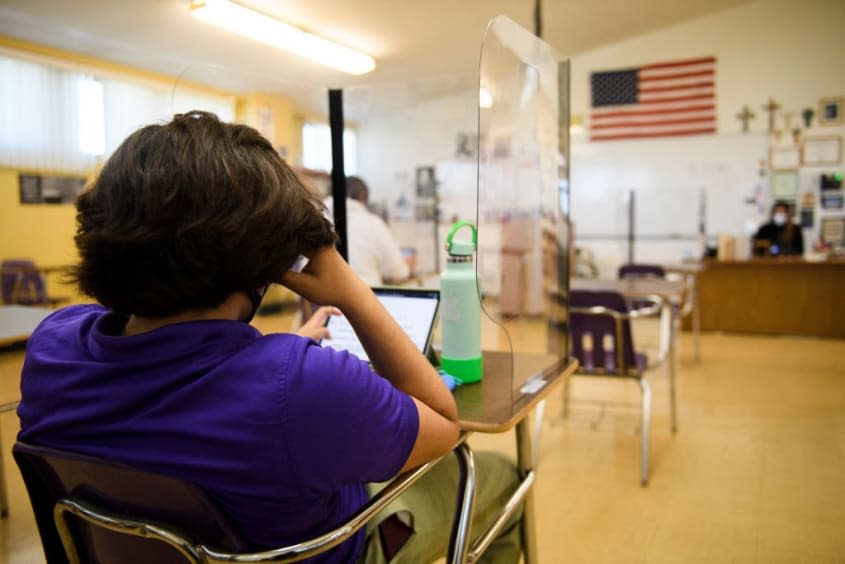Will plastic barriers help control COVID in classrooms and offices? Research says probably not.

As reopening schools and offices weigh their options for protecting students and workers from COVID-19, there's one method in particular they might consider kicking to the curb — plastic barriers, reports The New York Times.
Although further research is needed, aerosol experts agree that desk shields are unlikely to help curb the spread of COVID, in some instances perhaps even promoting transmission by changing the air flow in a room, creating "dead zones" of concentrated aerosols, and redirecting the germs to another person, says the Times.
"If there are aerosol particles in the classroom air, those shields around students won't protect them," said Richard Corsi, the incoming dean of engineering at the University of California, Davis. "Depending on the air flow conditions in the room, you can get a downdraft into those little spaces that you're now confined in and cause particles to concentrate in your space." Those built-up particles can then float around the "forest of barriers" and spread beyond one individual desk or cubicle, said Linsey Marr, one of the world's leading experts on viral transmission.
Shields might prove helpful in specific instances — like halting the big droplets emitted during coughs and sneezes — but not particularly in trapping the "unseen aerosol particles" by which COVID-19 spreads. "The smaller aerosols travel over the screen and become mixed in the room air within about five minutes," said Catherine Noakes, a professor at the University of Leeds in England. "This means if people are interacting for more than a few minutes, they would likely be exposed to the virus regardless of the screen."
In lieu of plastic barriers, aerosol scientists suggest schools and workplaces focus on encouraging vaccinations, improving ventilation, adding HEPA air filtering machines when needed, and requiring masks to curb COVID transmission. Read more at The New York Times.
You may also like
Actor suspected of participating in Capitol attack arrested in California
Ricky Gervais, Stephen Fry, and more pay tribute to 'brilliant' comedian Sean Lock
How sociology shows 'policy makers have been looking at vaccine refusal all wrong'

